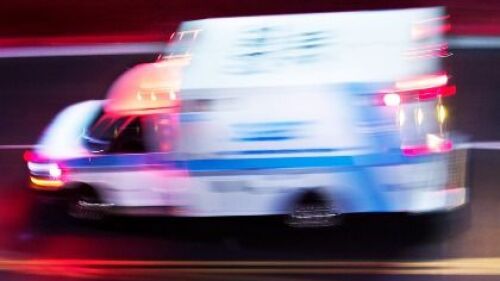By Hannah Mackay
The Detroit News
DETROIT — Twenty-five harm reduction stations have been installed throughout Detroit to provide residents with free supplies to reduce opioid overdoses, as well as reduce the transmission of HIV and sexually transmitted infections, the Detroit Health Department announced Thursday.
The stations — some of which look vending machines, others look like TV stands — are tailored for specific locations, Detroit’s Chief Health Officer Denise Fair Razo said during a press conference. They contain naloxone, also known as Narcan, a medication that rapidly reverses an opioid overdose, along with fentanyl test strips. Some stations also contain supplies such as condoms, Plan B, and oral contraceptives.
“Narcan saves lives, it can reverse an opioid overdose in minutes,” Fair Razo said. “Having it in our homes, in our workplaces, and yes, even in our glove compartments anywhere can mean a difference between a life or death.”
The harm reduction stations, funded by $250,000 in , are strategically placed in neighborhoods with the highest overdose rates and areas of high foot traffic, Fair Razo explained.
Tabletop stations can be found at beauty and barber shops and will be restocked often, Fair Razo said. Purple newsstand-style stations will be outside of community partners such as restaurants, while two vending machine style stations are located at the Jason Hargrove and Rosa Parks Transit Centers, she added.
“We want every Detroiter to take advantage of these life-saving opportunities,” Fair Razo said. “It’s really available for anyone... and there is no cost, this is absolutely free.”
In the last two years, 14% of overdoses in Detroit were fatal, Fair Razo said. Opioids are also the leading cause of overdoses in Detroit, with most being between the ages of 19 and 44, she added.
“Thirty percent of those overdoses occurred in black men between the ages of 45 and 64,” Fair Razo said. “The most significant Increase in fatal overdoses is older black men ages 60 and above.”
Drug-related overdoses were also likely preventable, said Marshea Browner, director of the Detroit Community Health Services.
“We need to make sure every Detroiter is educated on how to properly administer naloxone and what to do, because the truth is, we never know when we might be the person that has the ability to save someone’s life,” Browner said.
The Health Department provides free training in schools, churches, and community centers, Fair Razo said. Prefilled are available at all of the harm reduction stations.
Detroit Fire Department paramedic Christopher Porreca explained that patients in need of naloxone will be very hard to rouse or completely passed out.
"(Either) they’re breathing very slowly, or they will not be breathing at all,” Porreca said. “And these are the patients that we need to administer naloxone to and then call 911, about, so that they can get the follow-up care that they need to ensure that they have a safe potential detox.”
The city hopes to increase the number of harm reduction stations to 50 in the coming months, Fair Razo said.
“We really need more community partners to participate,” Fair Razo said. “If you are a community partner, if you’re a gas station, a barber shop, a salon, we want to hear from you.”
Residents can find the closest harm reduction station to them .
©2025 The Detroit News.
Visit .
Distributed by















